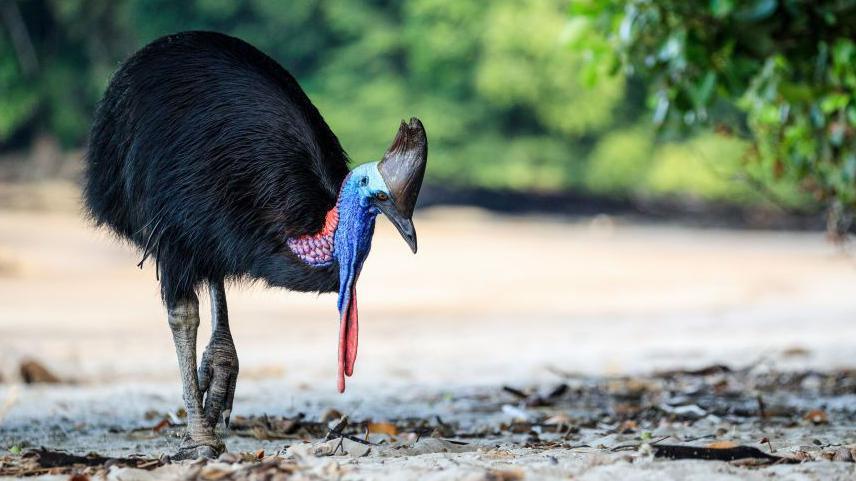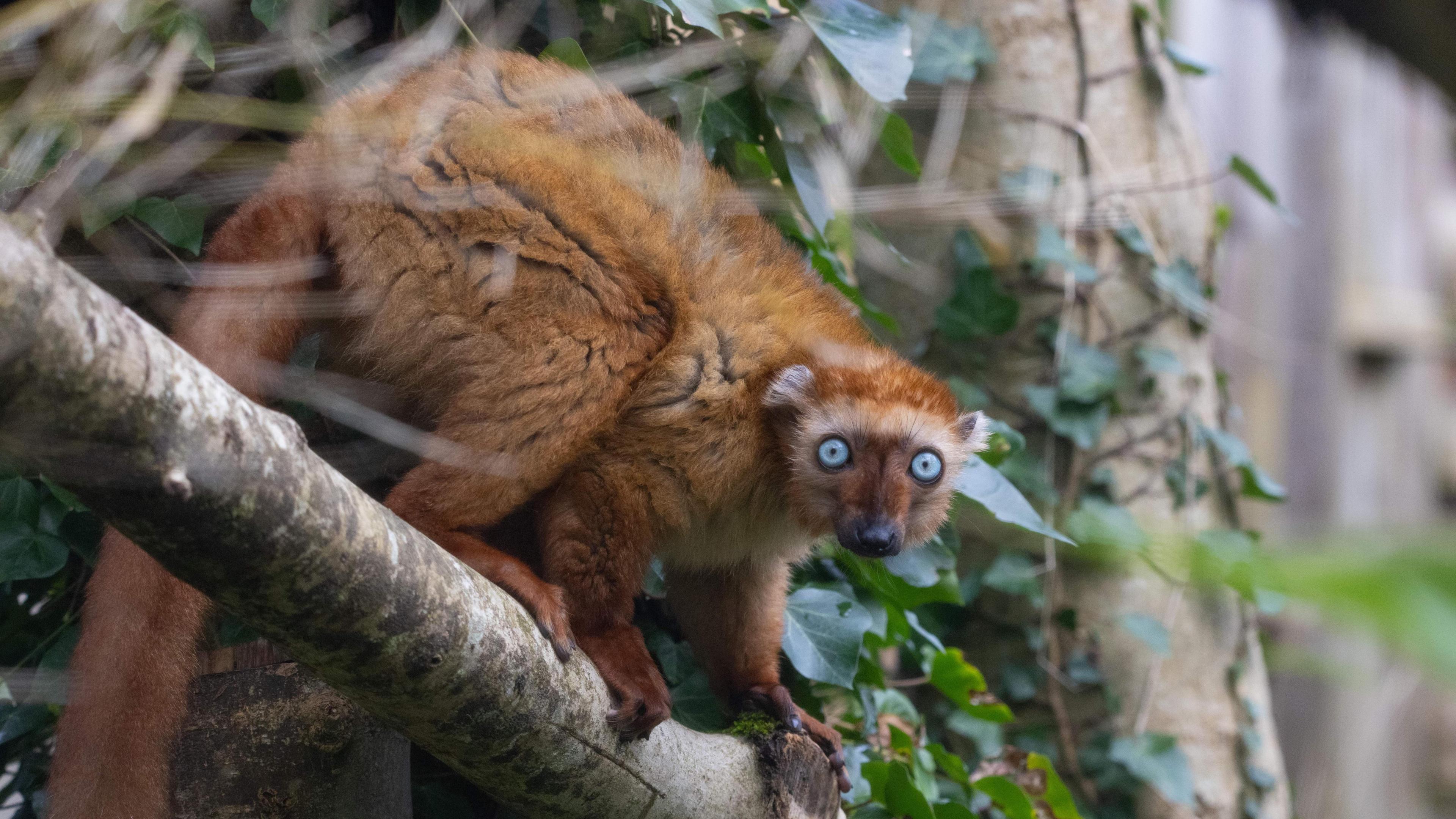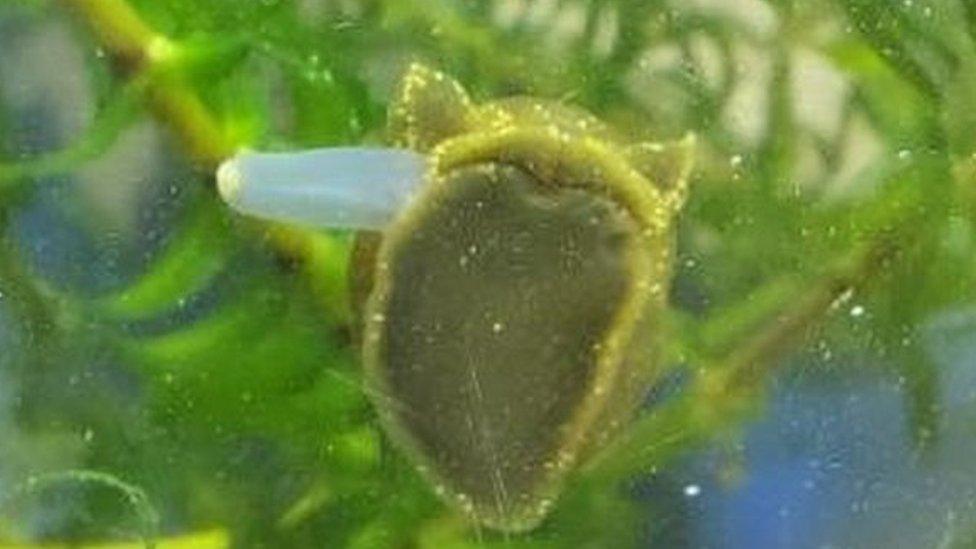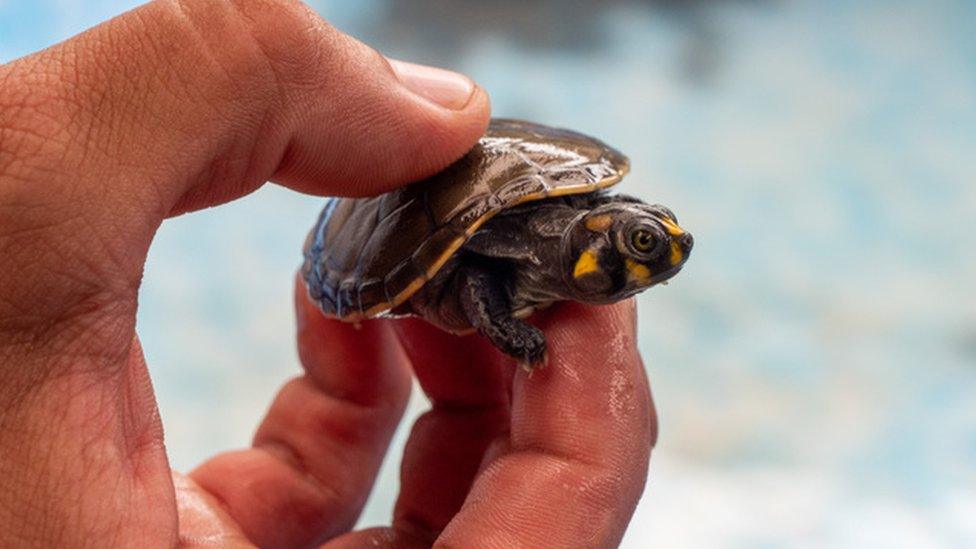Scientists analyse sound to help endangered animals

The research suggested the flightless southern cassowary makes "pulsed" calls
- Published
Researchers are listening to sounds made by some endangered species in a bid to help save them from extinction.
Warwick University has joined forces with Australia's University of New South Wales to analyse sounds made by animals, including types of birds and elephants.
The scientists are using a new method adapted from technology used to analyse brain waves in neuroscience, said Warwick University.
Analysis of the animal sounds can be used to estimate population size, identify where animals live and their migration patterns, researchers said.
Scientists are also trying to understand "any negative impacts" the animals may experience from increasing levels of noise from human activity.
The study is based on a method named the superlet transform (SLT) which turns signals into an image.
Lead researcher Ben Jancovich said the information was "vital" to develop conservation strategies for endangered species including types of elephants, whales and birds.
Mr Jancovich, a visiting PhD student from the University of New South Wales, said the new method was more accurate and helped scientists spot familiar shapes and recurring patterns of animal songs.
In comparison, existing methods struggled to visualise time and frequency information at the same time, which affected the analysis of sounds.
“The new method we demonstrated offers increased accuracy and requires less expertise to use, so it should prove to be a hugely valuable tool for animal sound researchers that don’t have an engineering background," he said.
The research revealed calls by the Asian elephant, southern cassowary and American crocodile contains sounds that are “pulsed”.
Researchers added as these discoveries were based on single recordings, they were not conclusive findings, and more sounds needed to be analysed.
However, they said it illustrated "the power of this new method to clarify details".
Follow BBC Coventry & Warwickshire on Facebook, external, X, external and Instagram, external. Send your story ideas to: newsonline.westmidlands@bbc.co.uk, external
Related stories
- Published27 May 2024

- Published10 April 2024

- Published20 December 2023
